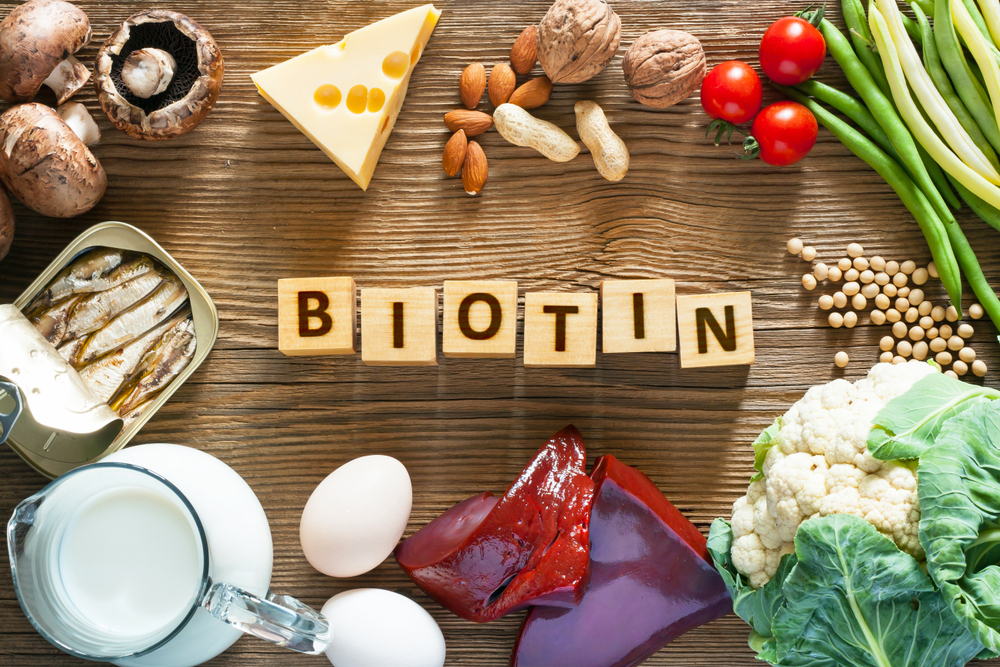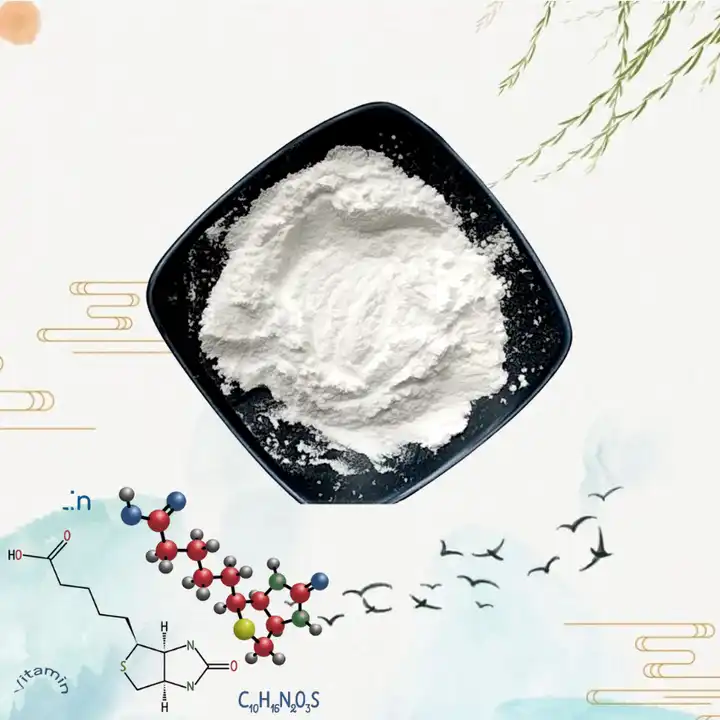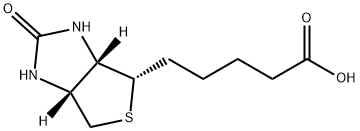| Basic Information | |
| Product name | D-Biotin |
| Other name | vitamin H and coenzyme R |
| Grade | food grade |
| Appearance | White crystalline powder |
| Assay | 99% |
| Shelf life | 2 Years |
| Packing | 25kg/drum |
| Characteristic | Soluble in hot water, dimethyl sulfoxide, alcohol and benzene. |
| Condition | Store in cool & dry place, Keep away from strong light and heat. |
Description of product
Biotin, also called vitamin H (the H represents Haar und Haut, German words for "hair and skin") or vitamin B7, is a water-soluble B vitamin. It is involved in a wide range of metabolic processes, both in humans and in other organisms, primarily related to the utilization of fats, carbohydrates, and amino acids.
D-biotin is one of eight forms of the water-soluble vitamin, biotin, also known as vitamin B-7. It is a coenzyme -- or helper enzyme -- for numerous metabolic reactions in the body. D-biotin is involved in lipid and protein metabolism and helps convert food into glucose, which the body uses for energy. It's also vital for maintaining skin, hair and mucous membranes.
Application and function
As a feed additive, it is mainly used for poultry and sow feed. Usually the premixed mass fraction is 1%-2%.
It is nutritional supplement. According to China GB2760-90 regulations, it could be used as a food industry as a processing aid. It has physiological functions to prevent skin diseases and promote lipid metabolism and so on.
It is carboxylase coenzyme, involved in many carboxylation reactions, and is an important coenzyme in the metabolism of sugar, protein and fat.
It is used as food fortifier. It is used for infant food with amount of 0.1~0.4mg/kg, in the drinking liquid 0.02~0.08mg/kg.
It could be used for labeling proteins, antigens, antibodies, nucleic acids (DNA, RNA) and so on.





